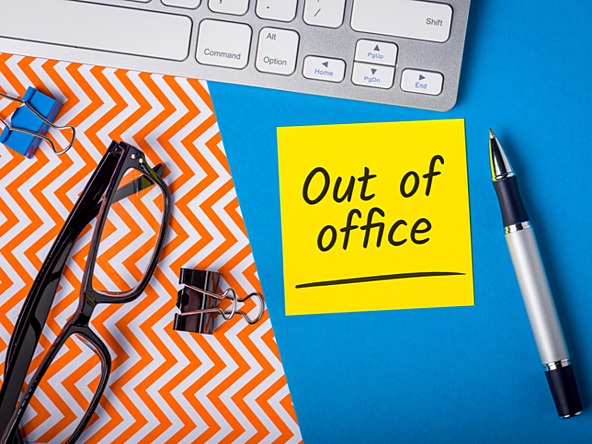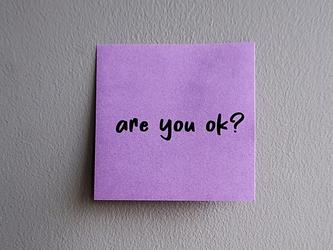How to really switch off this summer

By the time you’re reading this, the holiday season will be in full swing. Whether you’ve got children who are on school holidays or not, July, August and September typically herald a chance for many of us to take some much-needed annual leave.
But despite having it booked out in your calendar, you may still find it hard to switch off and relax, and for many of us, feeling like we need to remain connected and contactable makes it even harder.
Once upon a time, phones weren’t smart and laptops were an expensive luxury reserved only for the snazziest of field-based client facers with everyone else using a tower computer that lived permanently under your desk in the office. These days, almost any file, email and calendar can be accessed from almost anywhere in the world on the same device you use to take your holiday snaps with.
Work projects/issues are only one notification or button click away from being an uninvited extra holiday companion, interrupting your much-needed rest. I’ve heard it said that we’re not necessarily over-worked but we are under-rested, with almost every waking moment filled with things demanding our attention.
So how can you make it a proper break?
Handover
To start with, just as you’ve planned your physical travel to your holiday destination, plan your departure from your projects and delegate or defer.
Handover notes can be useful but don’t forget to actually empower decisions in your absence. I used to write fairly detailed notes but didn’t go so far as to allow anyone to make quick decisions and assure them that I’d back whatever they had decided to do. As a consequence, some projects fell in a holding pattern that compressed time for deliverables and required immediate attention when I returned. It was not a great message from me about trust, and it meant I spent time worrying about what pieces I might have to pick up when I got back.
Filter emails automatically
Assuming I did manage to forget about work for a while, it would creep back in at least 48 hours before I left my holiday and inbox anxiety would appear – worrying about how many emails I would return to, given a typical day consisted of more than 100 arriving in my inbox. After two weeks off, I’d expect 2000 to have to work through at a minimum, which was very time consuming and a stressful welcome home present.
The truth was, only a small proportion of my email were actually to me. The rest I was included as CC and they didn’t require action. Did you know you can set up a filter in Outlook that automatically sorts any email that you are CCd on and can send it to an ‘in CC’ folder, leaving only emails that are actually to you in your inbox? It’s a game-changer.
Handback
With pre-booking slots in your diary before you leave for when you’ll catch up, reading relevant emails and taking projects back from people, and your first couple of days back at work will be way calmer. Your subconscious knows you have a plan in place and may just leave you be a bit more while you’re away, and your colleagues know exactly when they can stop baby-sitting your stuff so they’re less likely to ambush you the second you return.
That doesn’t help the reflexive email checking though and it might be a bit extreme for some, but you could try.
Hide or delete apps and switch off notifications
There’s no denying that having a phone can be handy on holiday – they’re great for looking up directions, safety, searching for information on places to go, paying for things etc. So, in some cases, it’s not practical to leave your devices behind.
Some of you may have work phones, in which case, leave those at home or at the hotel. But if your personal phone and work phone are the same, then remove (or hide) any work-related apps for the duration of your trip and switch off notifications.
For the bold, un-sync your calendar from your work account so you can’t see meeting invites, get rid of your emails, remove Slack and uninstall LinkedIn – it will all be waiting for you when you get back. It’s hard to fully relax if you’re constantly reminded that work exists.
But…what if?
I’m sure there are some of you reading this, thinking “but what if someone needs me/there’s a work crisis/I forgot to give someone access to a document before I left”. The hard truth is that if you’ve empowered your team sufficiently, they’ll be able to make decisions on your behalf. You might not agree with everything that they do, but work isn’t going to stop because you’re not there.
Not everything that is marked as ‘urgent’ is actually urgent. From a personal perspective, back before everyone carried a mobile, you let your parents know which hotel you were staying in and then they could call the front desk if there was an emergency. Let the people who need to know, know, and then switch off.
The world will keep spinning but perhaps your mind will have a chance to slow down for a bit.
James Pickles is an executive coach and wellbeing consultant

We hope you enjoyed this article.
Research Live is published by MRS.
The Market Research Society (MRS) exists to promote and protect the research sector, showcasing how research delivers impact for businesses and government.
Members of MRS enjoy many benefits including tailoured policy guidance, discounts on training and conferences, and access to member-only content.
For example, there's an archive of winning case studies from over a decade of MRS Awards.
Find out more about the benefits of joining MRS here.













1 Comment
Derek Jones
8 months ago
Excellent advice
Like Reply Report